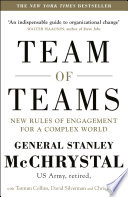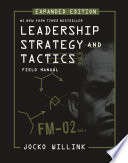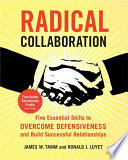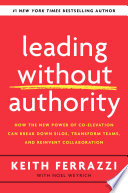Chris Fussell
Chris Fussell is a prominent figure in the fields of business and leadership, known for his insights into organizational dynamics and team effectiveness. He is a partner at McChrystal Group, a consulting firm co-founded by General Stanley McChrystal, where he focuses on helping organizations improve their performance through better collaboration and communication.
Fussell's background includes extensive experience in the U.S. military, where he served as an officer in the Navy SEALs. His military career has significantly influenced his approach to leadership and teamwork, emphasizing the importance of adaptability and shared purpose in high-pressure environments.
In addition to his consulting work, Fussell is a co-author of the book "Team of Teams: New Rules of Engagement for a Complex World," which explores how organizations can thrive in an increasingly complex and interconnected world. The book draws on lessons from the military and applies them to business, advocating for a more flexible and collaborative approach to leadership.
Fussell is also a sought-after speaker and thought leader, sharing his expertise on topics such as leadership, teamwork, and organizational change. His work has resonated with a wide audience, including corporate leaders and professionals seeking to enhance their organizational effectiveness.
Overall, Chris Fussell is recognized for his contributions to understanding modern leadership and teamwork, blending military insights with business practices to foster innovation and resilience in organizations.
David Silverman
David Silverman is a prominent figure known for his work in the fields of business and technology. He has gained recognition as a consultant, author, and speaker, focusing on topics related to organizational culture, leadership, and effective communication. Silverman is particularly noted for his insights into how businesses can improve their performance through better engagement and understanding of their workforce.
He has authored several influential books that explore the dynamics of workplace relationships and the importance of fostering a positive organizational environment. His writing often emphasizes the value of transparency and open dialogue within companies, advocating for practices that enhance collaboration and innovation.
In addition to his writing, Silverman has worked with various organizations, helping them to implement strategies that drive change and improve overall effectiveness. His expertise is frequently sought after in corporate settings, where he conducts workshops and training sessions aimed at empowering leaders and teams.
Silverman's contributions to the discourse on business practices and leadership have made him a respected voice in his field. His work continues to inspire professionals seeking to navigate the complexities of modern organizational life.
General Stanley McChrystal
General Stanley McChrystal is a retired four-star general in the United States Army, known for his leadership in the U.S. military and his role in the War on Terror. He gained prominence for his command of the Joint Special Operations Command (JSOC) during the Iraq War, where he oversaw operations against high-value targets, including the hunt for Osama bin Laden. His innovative approach to military strategy and emphasis on teamwork and adaptability have been widely recognized.
McChrystal served in various leadership positions throughout his military career, including as the commander of U.S. and NATO forces in Afghanistan. His tenure in this role was marked by a focus on counterinsurgency tactics and the importance of building relationships with local populations. However, he also faced controversy, particularly following an article that led to his resignation after comments made about civilian leadership.
After retiring from the military, McChrystal transitioned to the private sector, where he has been involved in leadership consulting and public speaking. He co-founded the McChrystal Group, a consulting firm that focuses on leadership and organizational development. McChrystal is also an author, having written books on leadership and the lessons learned from his military experience.
In addition to his professional endeavors, he is known for his advocacy on issues related to veterans and military families. McChrystal's insights into leadership, teamwork, and adaptability continue to resonate in both military and civilian contexts.
Tantum Collins
Tantum Collins is an author known for his contributions to the fields of business and personal development. His work often explores themes related to entrepreneurship, leadership, and self-improvement. Collins has a background that combines practical business experience with a passion for helping individuals and organizations achieve their goals.
While specific details about his education and career trajectory are not widely documented, Collins has gained recognition for his insights into effective business strategies and personal growth techniques. He emphasizes the importance of mindset and resilience in overcoming challenges, which resonates with a broad audience seeking to enhance their professional and personal lives.
Collins has also been involved in various speaking engagements and workshops, where he shares his expertise and motivates others to pursue their aspirations. His writing reflects a commitment to empowering readers through actionable advice and relatable anecdotes.
Overall, Tantum Collins is a figure in the business and personal development landscape, known for his focus on fostering growth and success in individuals and organizations alike. However, limited verified information is available about his specific works or achievements.
















